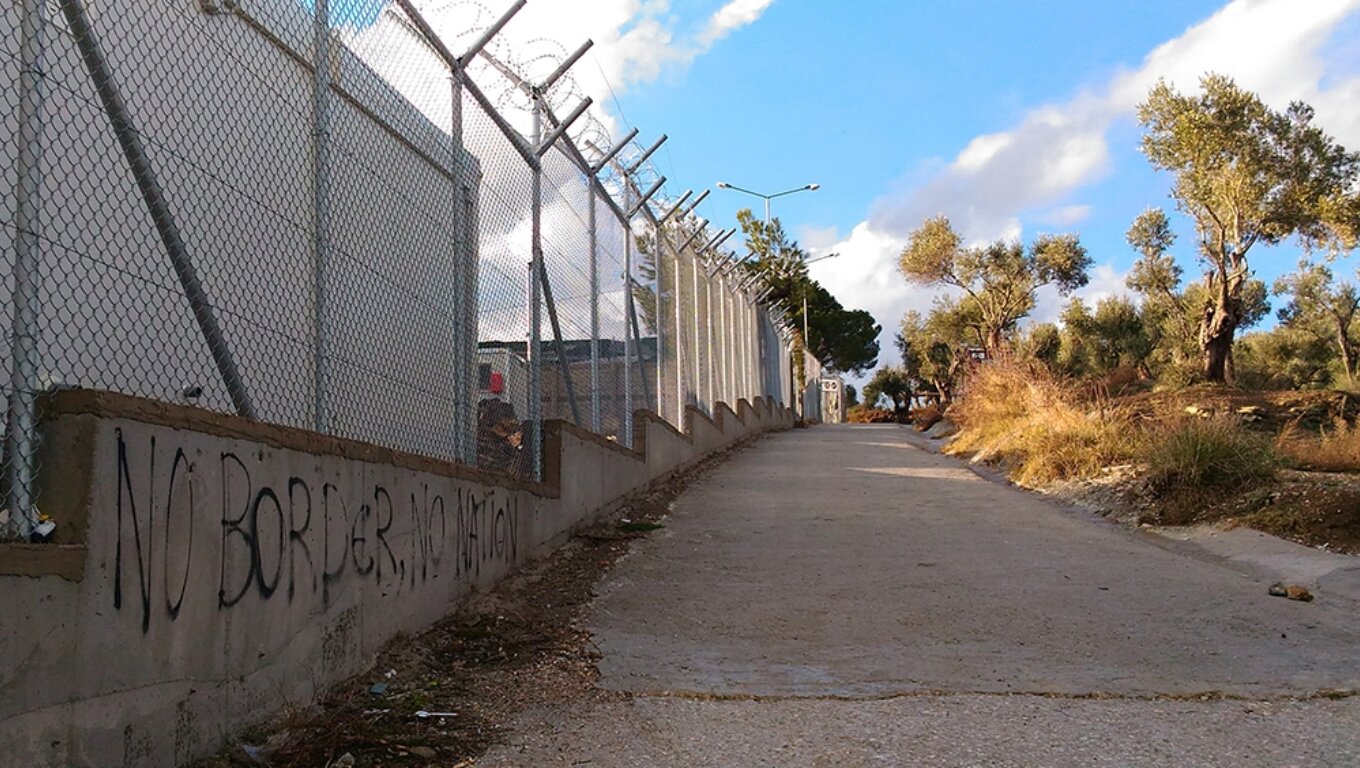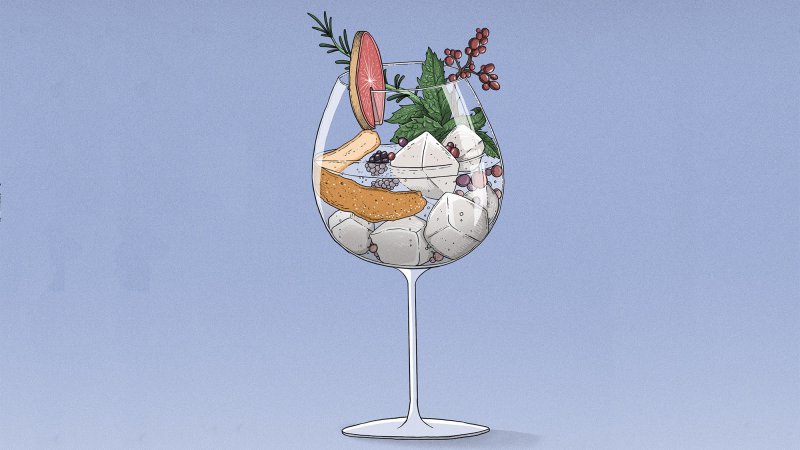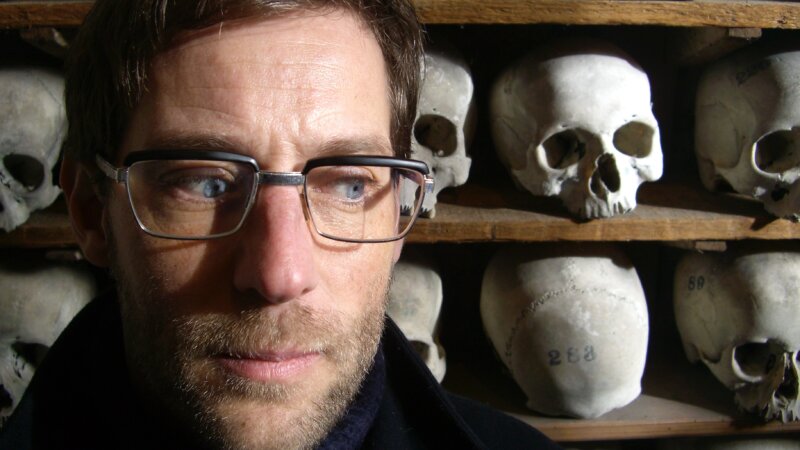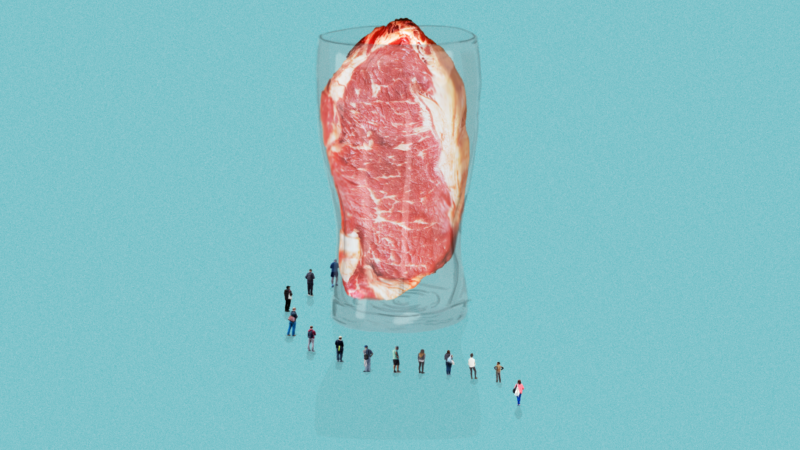Moria: An Ugly Symptom of a Broken System

Fonsiya sits protectively next to her sister Maryan. 19 years old but weighing just 18kg, it's clear she is unwell.
Fonsiya begins to tell their story. They arrived this morning on the boat from Turkey, after walking for five days through the mountains to reach the coast. Neither of them have eaten a proper meal for those five days and they've drunk only small sips of water. Maryan is becoming increasingly drowsy. As Fonsiya talks, Maryan's head repeatedly falls forwards as she falls asleep in her seat. Each time, with great effort, she lifts it upright again.
"We only have one pain relief patch left," Fonsiya tells me. Running out is not an option. Maryan has advanced cancer and her pain is unbearable without medication. Their last savings were spent on the boat crossing and their father's recent death means they no longer have any income to rely on. At this point in the story, Fonsiya breaks down.
I pause, partly to find a tissue for Fonsiya, partly to consider what to do, but also because I need a moment to gather myself. The Somali translator, Mahmood, is also clearly affected. His eyes are shining. If I think my job is challenging, it's not a touch on his. Translating so often demands an emotionally intense intimacy that I, as a shamefully unilingual English speaker, am protected from. It's only my third day in Lesbos working as a doctor in Moria refugee camp and I'm already finding it overwhelming. I have come from Sheffield to volunteer with MedGlobal, an NGO providing extra doctors to support the Greek government's clinic within Moria, known as Keelpno.
As you approach Moria, the surrounding olive groves turn into makeshift tents and shelters, an indicator of the camp's rapidly growing population. Graffiti reads, 'Welcome to Moria Prison'. Although Moria is not a prison, it can feel like one. Originally built as a military base, its imposing high-security walls are covered with razor wire and a stream of sewage frequently swells up at its entrance. I often wonder what the newly-arriving refugees, who have risked their lives to cross the sea, must think.
The situation in Moria cannot be sustained
The camp and its services are at breaking point. One of my Greek nursing colleagues tells me, "We have never seen it like this before". By the end of August 2018, Moria had 8,305 residents, but it was built for just 3,100. I see clearly the effects of overcrowding and poor sanitation. Skin infections are common and suspected scabies an almost daily event, along with diarrhoeal illnesses and respiratory tract infections.
But the most challenging part of my workload is the scale of psychological illness. Depression, anxiety and PTSD, a result of unimaginable past trauma, is exacerbated by the awful environment in Moria. Panic attacks, self-harm and severe physical manifestations of psychological illness are very common. Keelpno offers a psychology service, but a referral takes several months, and even then they can only offer assessments, because there is no capacity for therapeutic intervention. It's easy to feel helpless in the face of this.
The people are the hopeful light in this bleak narrative. Colleagues from Greece, Syria, Congo, Afghanistan and Iraq - to name just a few - triage, translate and coordinate, often working 14-hour days on the trot. The kindness of strangers like Mahmood, who offers to accompany Maryan and Fonsiya to the hospital, demonstrates people's capacity for compassion in the face of catastrophe.
The situation in Moria cannot be sustained. On returning home to Sheffield, my Greek colleagues tell me that around 2,000 refugees have been transferred to the mainland. I am hopeful that these people will at least have more habitable accommodation, but this is not a solution.
We must remember that Moria is a symptom of a broken system. The European response to the crisis has been uneven at best and straightforwardly inhumane at worst. We need a concerted, Europe-wide resettlement plan that acknowledges the differing resources between countries. This could be done - not easily, but feasibly, if the political will existed.
Philippa Jeacocke
Names have been changed for confidentiality.






